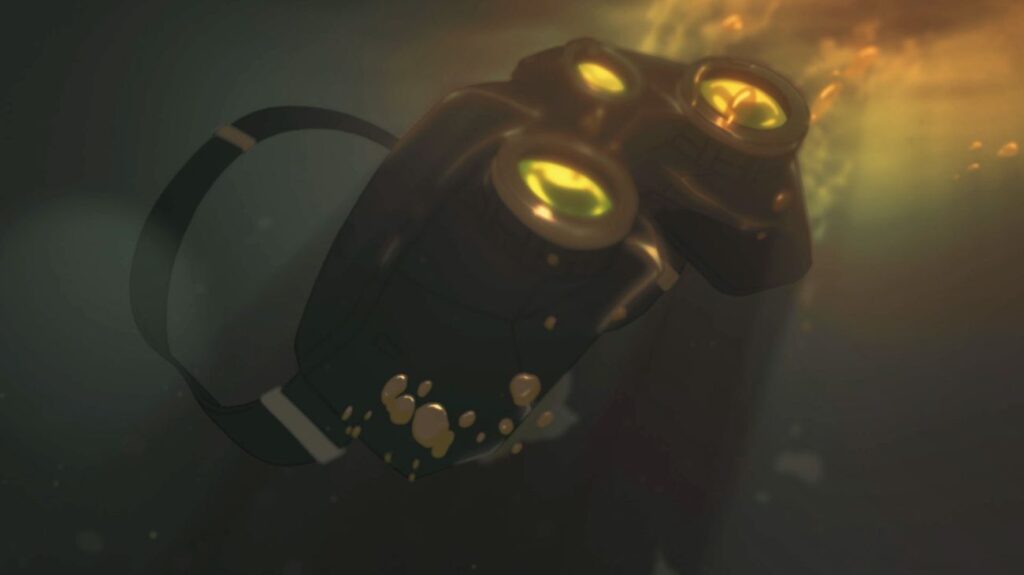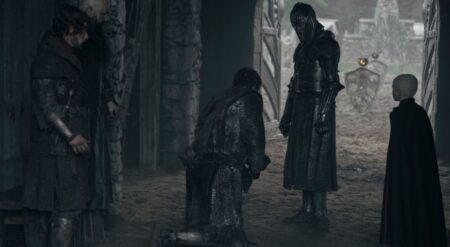Splinter Cell Deathwatch, based on the game series by Ubisoft, sees the franchise’s star, Sam Fisher (Liev Schreiber, Caught Stealing), retired from his work at Fourth Echelon. Living quietly on a farm, the legendary espionage agent is pulled back into work when current Agent Zinnia McKenna (Kirby Howell-Baptiste, The Sandman) has an operation go sideways on her, and Fisher is her only chance to escape. Once back in, he must help his old agency stop a plot that could upset the balance of the world and kill millions of people.
You never get a second chance to make a first impression. That’s why it’s always been such a painful truth in TV that pilots are so hard to land. That first episode should lay out, in no uncertain terms, all the reasons why some should come back for more. Despite there being many rocky pilots out there, Splinter Cell Deathwatch not only manages to escape this pitfall, but it delivers one of the best pilots I’ve ever seen.
From its opening moments, the first episode does everything you could ask for. It establishes tension, relationships, and stakes, all while setting up the unfolding plot lines of the series. Both McKenna and Fisher get their moments to showcase how deadly they are, establishing what the dual protagonists will be capable of throughout the series’ eight episodes.
Splinter Cell Deathwatch hits the ground running with action and emotion.

Just as important, though, is how quickly Splinter Cell Deathwatch establishes its villains. This isn’t a show where the elite heroes wade through an army unscathed. From the earliest meetings, we see just how effective the threats are, driving home the need for the heroes to be smart and stealthy.
Not a speck of the fantastic groundwork laid early on here goes to waste. As the pair of field agents, aided by support from home base led by Anna “Grim” Grímsdóttir (Janet Varney, Platonic), race to unravel a mystery, the tension, stakes, and emotional weight introduced early only grow and expand.
The layers of story, both the grand and personal, become numerous, but remain cleanly separated. As we learn about the heroes and villains alike, we get glimpses of their pasts, informing their motivations. Combined with the main plot, there is a fair amount to chew on in a short time.
Espionage, action, tense relationships, this Netflix Original animated series has it all.
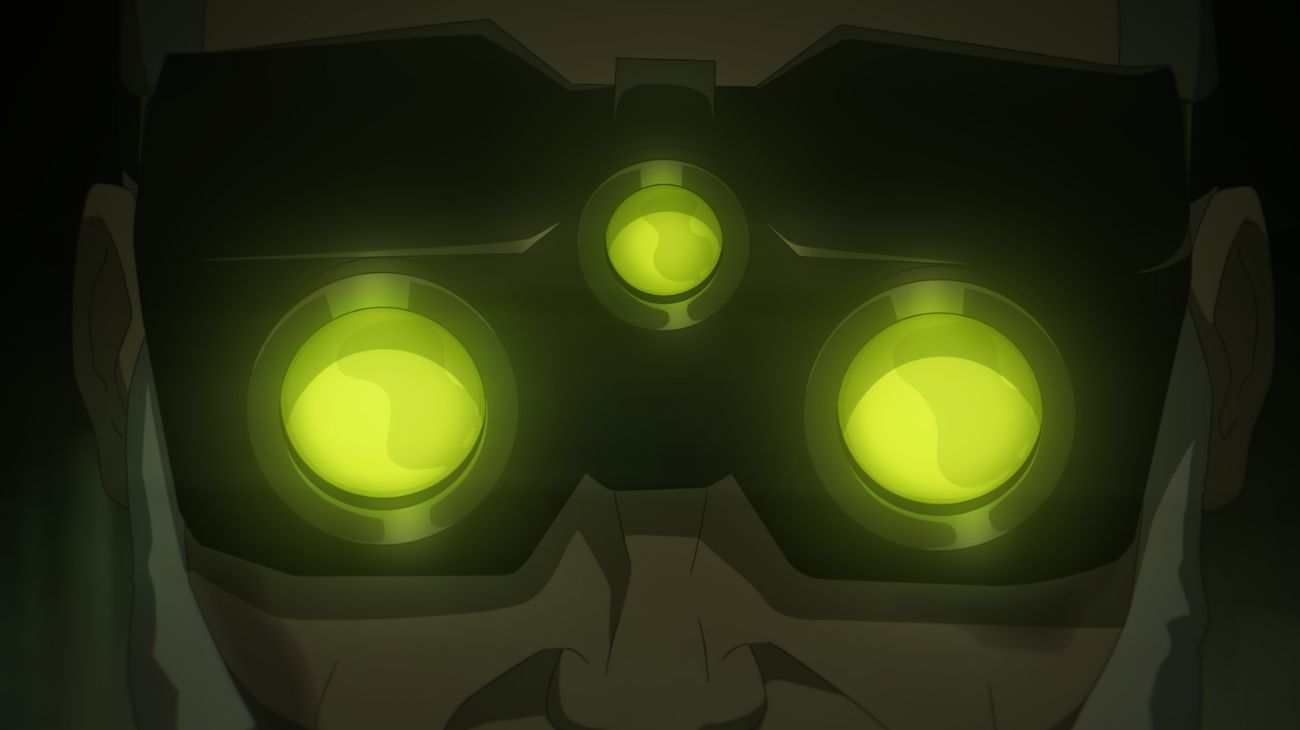
However, Splinter Cell Deathwatch keeps everything laid out in an easy-to-follow way. Flashbacks are impactful, but quick. There are no lengthy, impassioned speeches about good and evil, only whispered words and cold acknowledgments. This approach works beautifully with the cast and tone of the series.
Sharing the same blend of efficiency and impactfulness as the emotional moments is the action. Combat is hard and fast, with maximum damage being done in minimal time. There are no flashy spin kicks or stylish combat to be awed at. Violence in this world isn’t a spectacle; it’s a means to an end. This is especially true for Agent McKenna.
While presented as a seasoned agent, the events of this narrative are a deep turning point for her. The price she pays and the brutal tolls the series takes on her, and dolles out through her, begin to accumulate. As she drags herself through the muck, you see the rage and despair the spiralling situation brings clash within her. She makes mistakes and struggles to focus at times, but always for the most human of reasons.
Whether you’re a gamer or not, Splinter Cell Deathwatch is well worth watching.
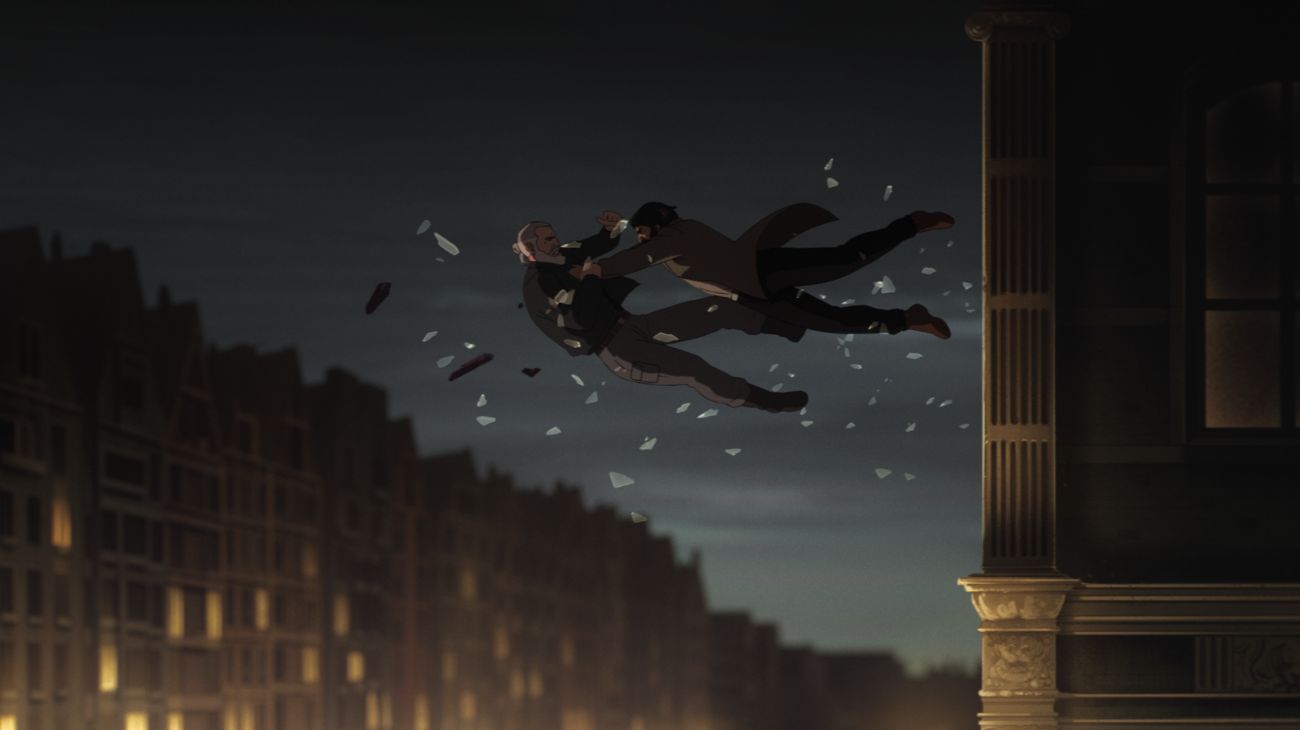
McKenna’s mounting emotional turmoil is brought to life fantastically through both voice work and animation. Her determination and wrath come through in every punch thrown, and every venom-coated threat that Baptiste delivers.
Providing a more stoic yin to McKenna’s emotional yang is Fisher. Having been down all these roads before, Sam provides a grounded support for his younger counterpart, even if that grounding often seems borne of exhaustion. Fisher always sees and understands what is happening, but he’s too tired to be drawn into the same way his McKenna is. Even when pieces of his old life come back to haunt him, Fisher is over it all.
Sam’s far more subdued energy can never be mistaken for indifference, though. His heartfelt concern and determination come to life as well as McKenna’s volatile ones, for the same combination of reasons. The animation lets Fisher’s body language express a lot of things he never says. And when he does speak, Schrieber manages to infuse his quiet words with an impressive amount of expression.
Each character has a layered personality and motivation, and that just works.
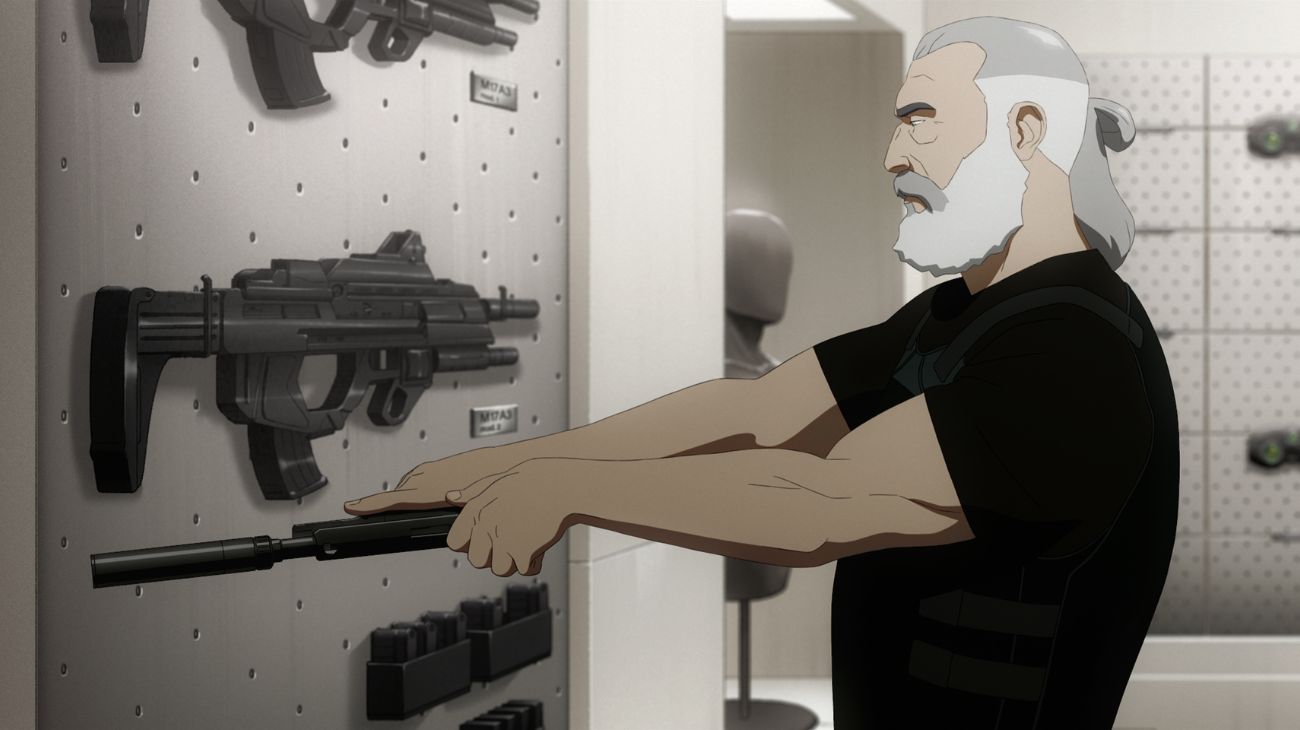
All of the emotion and action navigate the twisting plot to arrive at a surprising and immensely climactic ending. Every element and plot line gets its due as the finale brings a satisfying and memorable conclusion. It is nearly a perfect ending, except for one unforced error.
After the core of the final has wrapped, Fisher has a brief confrontation with someone. This moment makes no sense, as how Fisher knows he needs to be there or that the individual he faces is the bad guy is never made clear. It makes sense to the audience, but unless someone gave Sam a copy of the script, it’s unclear how this scene is supposed to come together.
From start to finish, Splinter Cell Deathwatch is nearly flawless. Great action, emotional character work, and a twisting plot that keeps you guessing deliver a fantastically engaging spy thriller. Whether you are familiar with the games or not, this series is one to check out.
Splinter Cell Deathwatch is streaming now on Netflix.
Splinter Cell: Deathwatch
-
Rating - 9.5/109.5/10
TL;DR
From start to finish, Splinter Cell: Deathwatch is nearly flawless. Great action, emotional character work, and a twisting plot that keeps you guessing deliver a fantastically engaging spy thriller.

